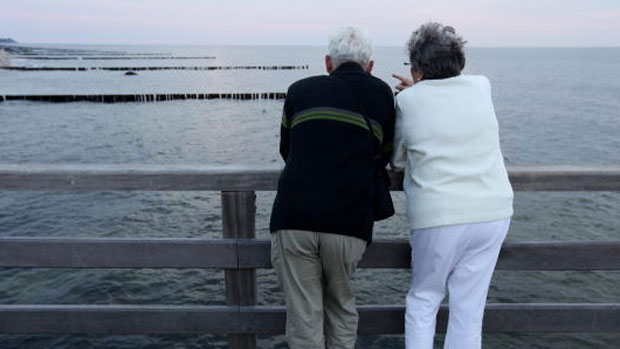Humans ‘could live to 130 this century’
And other stories from the stranger side of life

A free daily email with the biggest news stories of the day – and the best features from TheWeek.com
You are now subscribed
Your newsletter sign-up was successful
Scientists who studied almost 10,000 French men and women who lived past 105 have found that after the age of 108 our chances of dying no longer increase. Instead, we have about a 50-50 chance of making it through each of the following years. “The increasing number of supercentenarians makes it possible that the maximum reported age at death will rise to 130 years during the present century,” the scientists wrote in the Royal Society Open Science journal.
River otters on the attack
River otters have attacked people and pets in an Alaskan city’s most popular outdoor areas. Earlier this month, a nine-year-old boy was taken to an emergency room for a rabies shot after being bitten several times near a duck pond, the Anchorage Daily News reported. More recently, a woman was bitten while rescuing her dog from a similar group of river otters at a lake. An expert said otters are “wary of strange individuals”.
The Week
Escape your echo chamber. Get the facts behind the news, plus analysis from multiple perspectives.

Sign up for The Week's Free Newsletters
From our morning news briefing to a weekly Good News Newsletter, get the best of The Week delivered directly to your inbox.
From our morning news briefing to a weekly Good News Newsletter, get the best of The Week delivered directly to your inbox.
Danish museum rejects art
A Danish artist who was given £62,000 by a museum to use in a work of art has delivered two blank canvases, entitled Take the Money and Run. The director of Kunsten Museum of Modern Art in Aalborg said when they spoke to the artist about making the piece earlier this year, he agreed to the contract and “he indicated a fairly easy job”. They are now asking him to return the money.
A free daily email with the biggest news stories of the day – and the best features from TheWeek.com
-
 James Van Der Beek obituary: fresh-faced Dawson’s Creek star
James Van Der Beek obituary: fresh-faced Dawson’s Creek starIn The Spotlight Van Der Beek fronted one of the most successful teen dramas of the 90s – but his Dawson fame proved a double-edged sword
-
 Is Andrew’s arrest the end for the monarchy?
Is Andrew’s arrest the end for the monarchy?Today's Big Question The King has distanced the Royal Family from his disgraced brother but a ‘fit of revolutionary disgust’ could still wipe them out
-
 Quiz of The Week: 14 – 20 February
Quiz of The Week: 14 – 20 FebruaryQuiz Have you been paying attention to The Week’s news?
-
 Epstein files topple law CEO, roil UK government
Epstein files topple law CEO, roil UK governmentSpeed Read Peter Mandelson, Britain’s former ambassador to the US, is caught up in the scandal
-
 Iran and US prepare to meet after skirmishes
Iran and US prepare to meet after skirmishesSpeed Read The incident comes amid heightened tensions in the Middle East
-
 Israel retrieves final hostage’s body from Gaza
Israel retrieves final hostage’s body from GazaSpeed Read The 24-year-old police officer was killed during the initial Hamas attack
-
 China’s Xi targets top general in growing purge
China’s Xi targets top general in growing purgeSpeed Read Zhang Youxia is being investigated over ‘grave violations’ of the law
-
 Panama and Canada are negotiating over a crucial copper mine
Panama and Canada are negotiating over a crucial copper mineIn the Spotlight Panama is set to make a final decision on the mine this summer
-
 Why Greenland’s natural resources are nearly impossible to mine
Why Greenland’s natural resources are nearly impossible to mineThe Explainer The country’s natural landscape makes the task extremely difficult
-
 Iran cuts internet as protests escalate
Iran cuts internet as protests escalateSpeed Reada Government buildings across the country have been set on fire
-
 US nabs ‘shadow’ tanker claimed by Russia
US nabs ‘shadow’ tanker claimed by RussiaSpeed Read The ship was one of two vessels seized by the US military